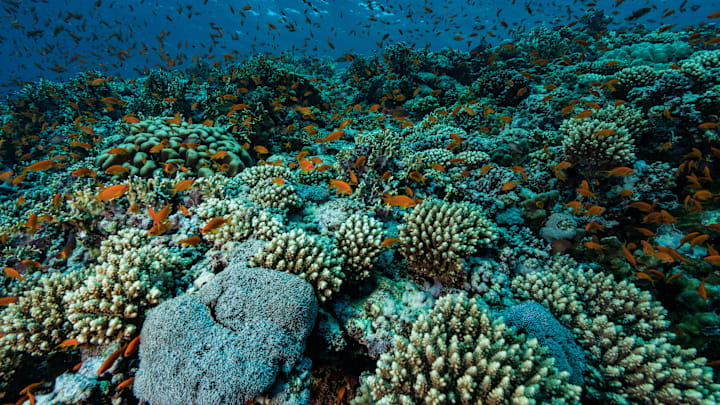The Importance of Coral Reefs in Marine Ecosystems

Coral reefs are among the most diverse and vibrant ecosystems on Earth, often referred to as the "rainforests of the sea." These underwater structures, formed by the calcium carbonate skeletons of coral polyps, provide habitat for a vast array of marine species and offer numerous benefits to human societies. The importance of coral reefs in marine ecosystems lies in their incredible biodiversity, ecological functions, and the challenges they face from environmental pressures. Understanding and conserving coral reefs is crucial for preserving their beauty, ecological function, and the services they provide.
Coral reefs support an astonishing diversity of life, hosting thousands of species of fish, invertebrates, algae, and other marine organisms. This biodiversity is essential for the health and stability of marine ecosystems, with each species playing a specific role in maintaining ecological balance. Coral reefs provide food, shelter, and breeding grounds for a wide range of species, many of which are not found anywhere else. The vibrant colors and intricate structures of coral reefs are a testament to the diversity and richness of life they support.
The ecological importance of coral reefs extends beyond their immediate surroundings. Reefs protect coastlines from erosion and storm surges by acting as natural barriers that absorb wave energy. This protection is vital for coastal communities, infrastructure, and ecosystems. Coral reefs also contribute to the health of adjacent marine environments, such as seagrass beds and mangroves, by providing nursery habitats for fish and other marine species. The interconnectedness of these ecosystems highlights the broader significance of coral reefs in maintaining marine biodiversity and ecosystem function.
Human societies benefit from coral reefs in numerous ways, including food security, livelihoods, and cultural practices. Coral reefs support commercial and subsistence fisheries, providing a vital source of protein and income for millions of people worldwide. The rich biodiversity of reefs also supports recreational activities, such as diving, snorkeling, and ecotourism, which generate significant economic revenue and promote environmental awareness. Additionally, coral reefs have cultural and spiritual significance for many coastal communities, forming an integral part of their heritage and identity.
Despite their importance, coral reefs are facing unprecedented threats from human activities and environmental pressures. Climate change, pollution, overfishing, and destructive fishing practices are contributing to the degradation and loss of coral reefs globally. Rising sea temperatures and ocean acidification, driven by increased carbon dioxide levels, cause coral bleaching and weaken coral skeletons, making them more susceptible to disease and damage. Pollution from agricultural runoff, sewage, and plastic waste contaminates reef environments, harming marine life and disrupting ecological processes.
Conserving coral reefs requires a multifaceted and collaborative approach. Protecting and restoring reef habitats, reducing carbon emissions, and promoting sustainable fishing practices are essential strategies. Establishing marine protected areas (MPAs) can safeguard critical reef ecosystems, allowing them to recover and thrive. Restoration efforts, such as coral gardening and artificial reefs, can help rehabilitate degraded areas and enhance reef resilience. Reducing pollution through improved waste management and agricultural practices also plays a crucial role in protecting reef health.
Engaging local communities and stakeholders in coral reef conservation is vital for the success of these efforts. Recognizing the knowledge, rights, and needs of indigenous and local communities ensures that conservation initiatives are socially inclusive and culturally appropriate. Education and awareness campaigns can foster a deeper appreciation of coral reefs and encourage sustainable behaviors. International cooperation and policies, such as the Convention on Biological Diversity and the Paris Agreement, provide a framework for coordinated global action to protect coral reefs.
In conclusion, coral reefs are vital ecosystems that play a crucial role in marine biodiversity, coastal protection, and human well-being. Their ability to support diverse species, regulate coastal environments, and provide numerous benefits underscores their ecological and economic importance. However, coral reefs are increasingly threatened by human activities and environmental pressures. Conserving and protecting coral reefs is essential for ensuring their continued function, resilience, and the services they provide. By recognizing the value of coral reefs and taking concerted action to protect them, we can preserve these vital ecosystems for the benefit of present and future generations.